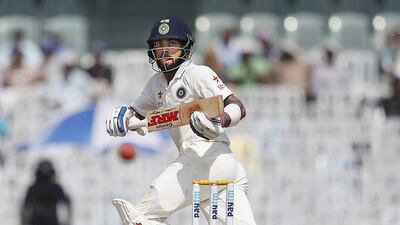Let us not kid ourselves — 2016 has been a pretty rough year for this planet. What with surprising political results and a never-ceasing gloom caused by celebrity deaths, it has been a good year for obituarists alone.
But cricket’s year has not been such a bad one, and given its anachronistic nature that feels just about right.
Four different teams have been on top of the Test rankings table for brief periods. The same flux has been in evidence for individual rankings for batsmen and bowlers.
From England’s win in South Africa to Sri Lanka’s win against Australia, Pakistan’s draw in England and South Africa’s triumph in Australia, the year has thrown up consistently unexpected results.
Home comforts
Of all the teams that have made it to the top this year, India’s rise feels like it could last the longest.
Scheduling has helped as they are currently amid the longest-home season they have ever had. They are so dominant at home that it is difficult to see how any side will reduce that gap over the next few months.
Their truest tests will always come in venues in England and Australia, of course, but there is a pleasing completeness about the side right now.
They have some of the best batsmen in the world, one of the two best spinners in the world and a group of fine pacemen.
It is difficult to see them being beaten at home any time in the near future.
The underdog tale
Perhaps this was the year’s most heart-warming story.
A team exiled from their home, six years in the making, led by a late-blooming 42 year old, full of an atypically hardworking squad, rising to the very top for the first time since official rankings began.
It is, of course, typical that Pakistan’s fall since has been pretty swift, but nobody can have begrudged them their brief time at the summit in the summer. And in that time, before the surprise Test loss to the West Indies and series loss in New Zealand, they genuinely played like one of the best sides in the world.
The batting had matured and the bowling was skilled and varied.
The sheen has gone a little but any result against a faltering Australia may restore it.
Call me inconsistency
Ask yourself how and why England are not the most dominant side of this era? They are among the best-resourced, the best-prepared. They have a line-up that has options coming out of its ears. They can utilise an attack of six bowlers and still bat down to No 10.
And yet this year, so far, they have lost as many Tests as they have won (six) and are likely to end with more losses than wins.
In a year that began with a stirring triumph in South Africa, that has to be a step backward. It is mostly the result of their travels to Asia, where, clearly they still have problems.
At key spots in the line-up they have been unable to find solutions.
At times their flexibility has actually worked against them.
This is a low
Still most Englishmen would have smiled through a lot of the year simply because of how bad Australia have been for most of it.
Australia gave no clue at the disintegration that was to come when they beat New Zealand early in the year.
Their troubles began in now familiar fashion — a complete inability to play in Asian conditions.
They were dissected in Sri Lanka, much like they had been in the UAE and India.
An inability to play spin is bad enough, but when the batsmen cannot play seam and swing either — as seen in the loss to South Africa recently — then the outlook is especially bleak.
They are in the midst of deep introspection currently.
Even a decent result against Pakistan will likely be short-lived, as they go to India early next year.
Follow us on Twitter @NatSportUAE
Like us on Facebook at facebook.com/TheNationalSport

